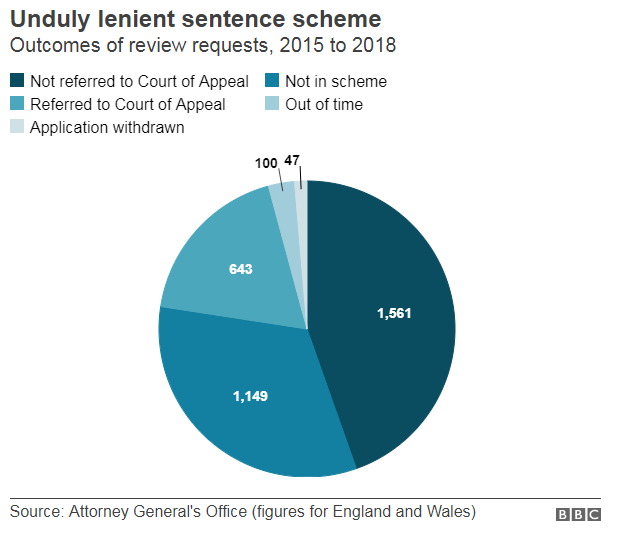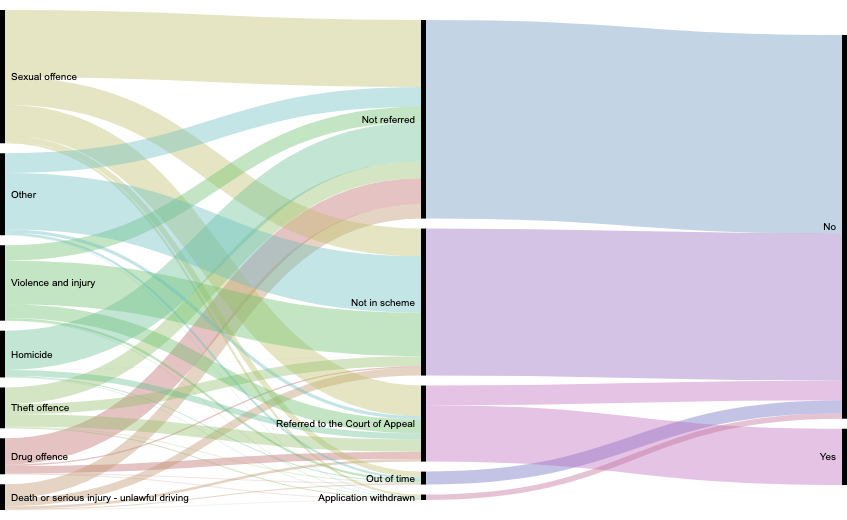In July 2019 Rob England reported on data revealing that a third of public requests to extend "lenient" sentences are rejected because the crimes committed are not eligible for review:
Figures obtained by the BBC under Freedom of Information laws show the unduly lenient sentence scheme received requests to increase 3,499 crown court sentences in England and Wales between 2015 and 2018.
Only 643 of these ended up at the Court of Appeal with 478, 14% of the total, resulting in harsher punishments.
About a third of all requests, 1,148, were dismissed outright because the crimes committed were not eligible for review - something critics say has to change.
The department had to re-release the 2016 data after some errors, so we had to combine two datasets (the one that is publicly available for that year, plus the revised FOI). There were also 30 sentences removed to avoid duplication.
- Attorney General's Office: Outcome of unduly lenient sentence referrals
- ONS: Crime in England and Wales: Appendix tables - used for categorising crimes
- Data from FOI, including analysis and cleaning: XLS
- Chris Boardman, Olympic cyclist whose mother was killed by a careless driver
- Arfon Jones, Police and Crime Commissioner for North Wales
- Lyndon Harris, Centre for Criminology, Oxford University
- Government spokeswoman
- Pie chart: Outcomes of review requests, 2015 to 2018
- Bar chart: Ten most common types of offences where public requests for a review were rejected because the crimes were "not in scheme"
The Sankey diagram below was generated to see how different types of cases flowed (top 7 categories only)

